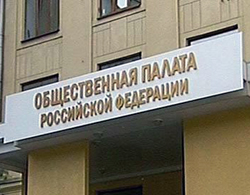Moscow, March 25, 2011

According to the Russian Orthodoxperiodical Tserkovny Vestnik, participating in the hearings were Bishop Longin of Saratov, President of the Central religious governance of Russian Moslems Mufti Albir Krganov, and representative of the traditional Buddhist camghas of Russia in Moscow Sanjay Lama Andrei Balzhirov.
Chairman of the Synodal department for Church-society relations Archpriest Vsevolod Chaplin conducted the round table discussion, and initiated the hearing.
The representatives of the Russian Orthodox Church again emphasized that the government should uphold the possibility to choose, legislate the right to use traditional census forms, and make them available to citizens, so that they would be of equal weight with the electronic forms. "People who do not accept the electronic cards should not be subjected to discrimination, in realms including medical aide and social benefits," noted Archpriest Vsevolod Chaplin. In connection with this, Orthodox social activist organizations have made a number of proposals to correct the current legislation.
His Holiness Patriarch Kirill of Moscow and All Russia had already touched up this issue in February 2011 at the Council of Bishops. He stated that, "The Church understands the position of those people who do not wish to be subject to a control that would allow for the collection of wide-ranging information on their personal lives, which could potentially be used to discriminate against citizens according to their world-views."
Mufti Krganov emphasized that such federal projects should be submitted to the general public for review before they are commenced. He said that "religious Moslems are also asking questions about this issue."
Sanjay Lama Andrei Balzhirov expressed his concern that commercial structures will be used to prepare and service the universal electronic cards. In his words, there is a manifest danger that the carriers of this electronic information could be cracked, and all the data on a specific individual could become accessible to people with bad intentions, which would "open up the opportunity for fraud, blackmail, and the use of this technology to extremist aims."
Russian Civic Chamber member Alla Gerber, along with other participants in the hearing, called for the provision of an exclusively voluntary nature of citizens' choice of one or another form of data accounting.
Also present at the hearing were representatives of federal and municipal agencies that have an interest in the electronic cards, including the medical insurance fund, as well as the company, "Univeral electronic cards." Archpriest Vsevolod Chaplin noted in an interview with the website Pravoslavie i Mir that the most important result is that the representatives of civic organizations have met with the governmental ministries and agencies that are working in this sphere.
According to Fr. Vsevolod, the representatives of the Ministry of mass communications of the Russian Federation, the Moscow municipal government, and the Federal fund of mandatory medical insurance have stated that the establishment of the UEC will be on a voluntary basis, and that those who eschew the card will not be denied social benefits.
He said that he hopes these assurances made by governmental agencies will be documented and used by people who wish to associate with governmental or other agencies that control the distribution of social benefits without accepting the electronic card.
